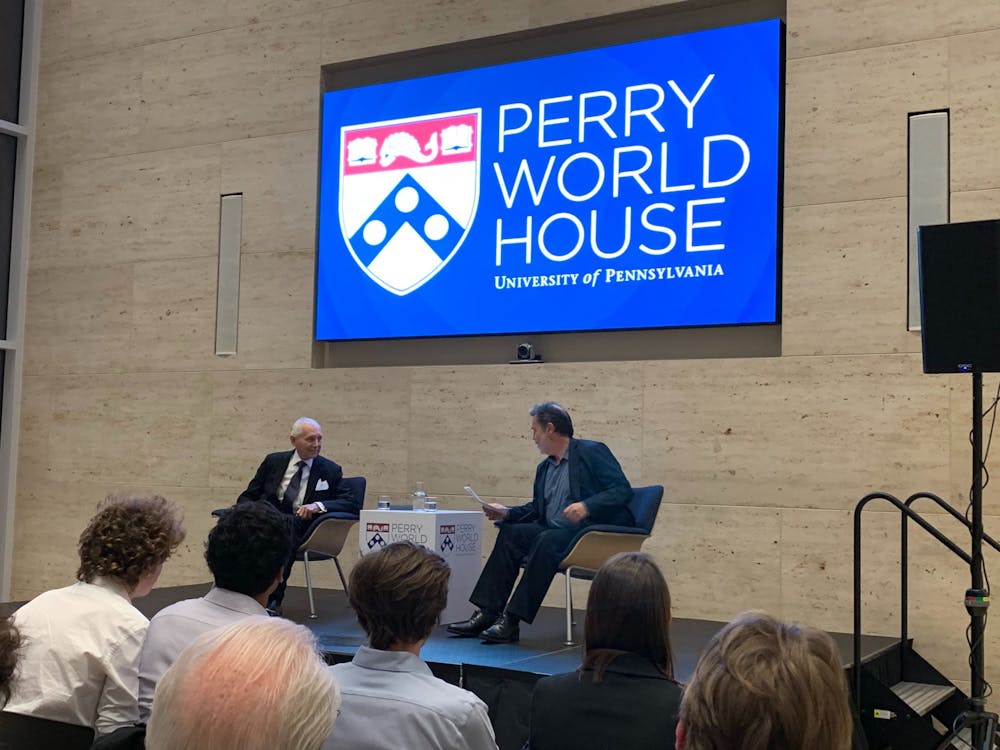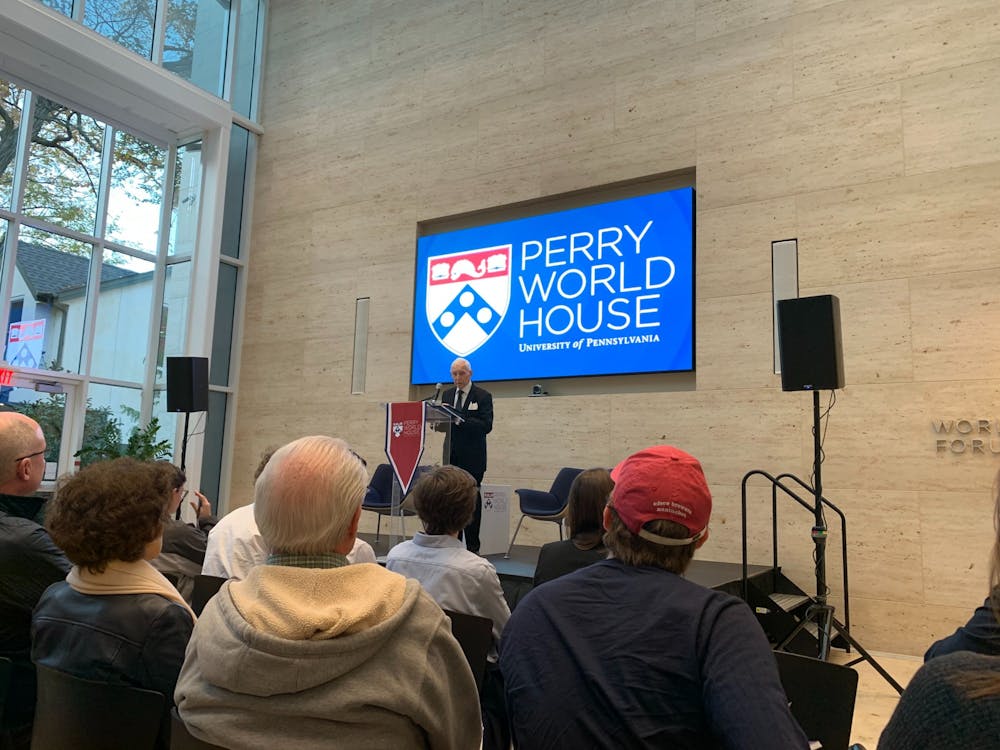
Former United States ambassador and diplomat, William Lacy Swing, led the largest U.N. peacekeeping mission in history between 2003 and 2008 in the Democratic Republic of Congo.
Credit: Eason ZhaoWilliam Lacy Swing, former United States ambassador and diplomat, spoke about the history and controversies surrounding United Nations peacekeeping missions at a Perry World House event Wednesday night.
Swing was the Special Representative of the Secretary General to the United Nations Mission in the Democratic Republic of Congo, where he led the largest U.N. peacekeeping mission in history between 2003 and 2008. In a discussion with Penn Political Science professor Nicholas Sambanis, Swing discussed his personal insights on the successes and challenges of U.N. peacekeeping missions.
Swing brought the audience through the history of U.N. peacekeeping missions, from the first mission in 1948 to today. He said these have spanned different phases targeting interstate conflict, intrastate conflict, and civilian protection, respectively. Overall, Swing said these missions have played a positive role in promoting peace.
“In all three phases, I think that one can say that the U.N. has contributed in some modest but calculable way to the decline of total number of wars,” he said.
Swing also pointed out challenges that peacekeeping missions face today, such as a shortage of resources, lack of media coverage, and difficulty coordinating between the U.N. and the countries supplying peacekeeping forces. He said the U.N. can improve peacekeeping efforts by working with a diverse set of organizations.
“We should continue to expand on our network of partners, not just government organizations [but] NGOs, academia, civil society activists," Swing said. "We also need to be seen as a U.N. that is much more open and much more inclusive."

At the end of the event, Swing listed challenges the international community is facing, such as climate change, inequality, and migration.
Throughout the event, Swing drew lessons from his own background as a commander in the U.N. peacekeeping mission in Congo, which was established to monitor the peace process of the Second Congo War. He said U.N. peacekeeping missions receive little attention around the world.
"When I was in Congo, I used to say it [was] a silent war," he said. "We’ve lost 4 million people in Congo, and it doesn’t reach page five of most major newspapers.”
Audience members raised questions at the end of Swing's speech. Political science Ph.D. candidate Yajna Sanguhan asked about the accountability of U.N. peacekeeping troops, referencing sexual abuse committed by Sri Lankan soldiers who were serving on a U.N. peacekeeping mission in Haiti.
“There is no question about it. It is certainly an important issue," Swing said. "These issues deserve constant attention.” He added that the U.N. has developed new training protocols and other policies to increase accountability.
“I think what the talk also highlighted was what is the conflict about United Nations at large and what the problems are with the construction of the U.N.,” Sanguhan said. “It is important to have these sort of events to help students to develop a deeper understanding on this kind of issue.”
At the end of the event, Swing listed challenges the international community is facing, such as climate change, inequality, and migration. He urged Penn students to consider public service careers that will let them engage with these issues.
“It is kind of hard to leave off on a negative note like that, but it is inspiring that you can be able to do something,” College freshman Madison Weiss said.
The Daily Pennsylvanian is an independent, student-run newspaper. Please consider making a donation to support the coverage that shapes the University. Your generosity ensures a future of strong journalism at Penn.
Donate




